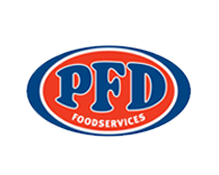Statistical Inference
Statistical inference:Statistical inference is the process of using data from a sample to make estimates or predictions about a population. This can be done in two ways: point estimation, which gives a single value as an estimate of the population parameter; and interval estimation, which gives a range of values within which the population parameter is estimated to lie.
The ability to draw meaningful conclusions from data via statistical inference is a powerful skill. Statistical inference enables researchers and practitioners to make judgments based on facts rather than speculation. It is used in disciplines of study ranging from the medical sciences to economics. This article will provide an overview of the concepts behind statistical inference, as well as some examples of its application.
Inference is a process by which conclusions are drawn about population characteristics based on sample data. The most commonly used techniques are probability-based methods such as Bayesian statistics or maximum likelihood estimation. These techniques allow us to measure uncertainty around our estimates and draw valid conclusions even when faced with incomplete or noisy data sets.
The goal of statistical inference is to establish relationships between variables, test hypotheses, and identify patterns in data that can be leveraged for decision making or prediction. In this article, we will explore how these processes work and examine several real-world examples of their applications.
What Is An Example Of A Statistical Inference?
Statistical inference is the process of drawing conclusions about a population based on sample data. It involves formulating hypotheses and testing them against the data to draw meaningful conclusions. Ull Hypothesis Testing is one common example of statistical inference, where a null hypothesis is made concerning some parameter in the population and then tested with confidence intervals to see if it holds true for that sample mean.
Another type of statistical inference used when dealing with smaller samples is Bayesian Inference which uses prior knowledge about the parameters being studied as well as sample data to create more accurate models. This method also requires an adequate sample size for reliable results and can help increase the confidence level of any given hypothesis test.
In summary, Statistical Inference helps assess relationships between variables by using different methods such as ull Hypothesis Testing or Bayesian Inference depending on the size of the sample data available. The quality of any result depends heavily upon how accurately these tests are conducted and interpreted, requiring careful consideration of all factors involved including sample size, sampling techniques, and confidence levels.
How Do You Determine Statistical Inference?
Statistical inference involves making inferences or conclusions about a population based on information from a sample taken. To determine statistical inference, one needs to use various analytical tools and techniques. One of the most common methods is using the null hypothesis, which states that there is no relationship between two given variables. This hypothesis can be tested using confidence intervals, as well as standard deviation and normal distribution tests. Bayesian statistics also allow for prediction models by calculating probability distributions through the central limit theorem. Maximum likelihood estimation can also provide more accurate estimates of population parameters when compared to traditional methods such as exponential distribution and chi square tests.
Another important aspect of determining statistical inference is interpreting data correctly in order to draw meaningful conclusions from it. This requires an understanding of different assumptions and constraints associated with data sets, including how outliers may affect results, what type of sampling was done (random selection or stratified), and any other issues that could influence interpretations of data results. By accurately analyzing data, researchers can make informed decisions regarding their findings and ensure they are drawing valid conclusions from their research studies.
What Are The 3 Types Of Inferential Statistics?
The technique of drawing conclusions and predictions from a set of data is known as inferential statistics. It involves using statistical methods to draw conclusions about populations based on samples. There are three main types of Inferential Statistics: Null Hypothesis Testing, Point Estimation, and Bayesian Inference.
Null Hypothesis Testing is used to assess whether an observed pattern or difference in a sample can be attributed to chance alone. If the null hypothesis cannot be rejected, there is no significant difference between the two groups being compared; otherwise, a statistically significant difference exists between them. This form of inference relies on frequentist properties such as Type I and II errors (false positives and false negatives).
Point Estimation is another type of inferential statistics that uses sample means to estimate population parameters. A point estimation technique typically seeks to identify the most likely value for a parameter by taking into account all available information regarding that parameter. However, this method does not provide any measure of certainty or confidence associated with its estimates due to its reliance on only one sample mean instead of multiple observations taken over time.
Bayesian Inference is a third approach to inferential statistics which combines prior beliefs with new evidence in order to update existing knowledge or make decisions under uncertainty. The Bayesian approach allows us to use data-driven models combined with subjective beliefs in order to quantify our uncertainty about unknown parameters without relying solely on frequentist procedures like maximum likelihood estimation (MLE) or sampling distributions created from repeated experiments. By combining both frequentist and bayesian approaches we are able to take advantage of both types of inference when making decisions about our data and/or generating accurate predictions from it.
In summary, inferential statistics provides powerful tools for making informed decisions based upon limited data through techniques such as null hypothesis testing, point estimation, and bayesian inference. Each methodology has their own advantages and disadvantages but collectively they offer valuable insights into understanding the relationships between variables and predicting outcomes in uncertain environments where traditional statistics may fail.
What Is Statistical Inference In Regression?
Statistical inference is a process of using data to make inferences on population parameters. It involves using machine learning and causal inference techniques to infer the total number in a population or the mean, based on random sampling. Statistical models are used to test hypotheses, by testing whether certain parameters fall within a predetermined level of significance.
Maximum likelihood estimation (MLE) and fiducial distribution are two main approaches that can be used for statistical inference in regression analysis. MLE uses sample data from a given population to estimate the probability distribution of unknown parameters. Fiducial distributions use observed values as well as prior information about the underlying model to construct an approximate probability density function.
These methods allow researchers to determine probabilities associated with various outcomes, enabling them to draw conclusions regarding relationships between different variables in the dataset and their effect on one another. They also provide insights into how much uncertainty exists in the results obtained through statistical inference in regression analyses. In addition, they help identify areas where there may be potential biases due to confounding factors or inadequate quality control measures during data collection processes.
• Machine Learning: A form of artificial intelligence that helps computers learn without explicit programming
• Causal Inference: The process of determining cause-and-effect relationships between events
• Statistical Model: A set of equations used to explain probability distributions and predict future events
• Level Of Significance: The degree at which evidence supports hypothesis
• Total Number: The estimated size of a population derived from survey data
• Random Sampling: Technique used when drawing samples from populations
• Population Mean: An estimation of average value across all members in a population
• Maximum Likelihood Estimation: A method for estimating statistics such as variance and bias
• Fiducial Distribution: A type of probability distribution constructed based on observed values
Conclusion
Statistical inference is the process of drawing conclusions about a population based on data taken from a sample. In order to determine statistical inferences, it is important to understand the three types of inferential statistics: descriptive, predictive, and explanatory. Descriptive statistics are used to summarize or describe data in meaningful ways; predictive statistics involve using historical information to predict future outcomes; and explanatory statistics involves investigating how two variables interact with each other.
In regression analysis, statistical inference allows us to draw conclusions about relationships between various predictor variables and one response variable. For example, if we want to know whether there is an association between gender and income level, statistical inference can help us assess this relationship by examining how much variability in income levels can be attributed to differences in gender.
The ability to make accurate inferences through careful analysis of data helps researchers gain valuable insights that would otherwise remain hidden when looking at raw data alone. As such, understanding the principles behind making valid statistical inferences is essential for any researcher who wishes to obtain reliable results from their study.
PREVIOUS NARROW AI GLOSSARY TERM
NEXT NARROW AI GLOSSARY TERM
Statistical Inference Definition
Exact match keyword: Statistical Inference N-Gram Classification: "Statistical inference", "statistical inferences", "statistical inference theory" Substring Matches: Statistical, Inference Long-tail variations: "Statistical Analysis", "Data Inference Theory" Category: Mathematics, Statistics Search Intent: Research, Solutions Keyword Associations: Probability Theory, Data Analysis, Descriptive Statistics Semantic Relevance: Hypothesis Testing, Correlation Analysis, Regression Analysis Parent Category: Mathematics Subcategories: Probability Theory, Data Analysis, Descriptive Statistics Synonyms: Hypothesis Testing, Correlation Analysis, Regression Analysis Similar Searches: Statistical Modeling, Statistical Research Methods Geographic Relevance: Global Audience Demographics : Students ,Researchers , Scientists Brand Mentions : SPSS , Minitab , STATA Industry-specific data : Statistically significant variables , Interquartile range (IQR) Commonly used modifiers : “Theory” , “Modeling” .Topically relevant entities : Hypothesis Testing , Correlation Analysis , Regression Analysis ."Larry will be our digital expert that will enable our sales team and add that technological advantage that our competitors don't have."
Kerry Smith
CEO, PFD Foods
$1.6 billion in revenue 
"Lion is one of Australasia’s largest food and beverage companies, supplying various alcohol products to wholesalers and retailers, and running multiple and frequent trade promotions throughout the year. The creation of promotional plans is a complicated task that requires considerable expertise and effort, and is an area where improved decision-making has the potential to positively impact the sales growth of various Lion products and product categories. Given Complexica’s world-class prediction and optimisation capabilities, award-winning software applications, and significant customer base in the food and alcohol industry, we have selected Complexica as our vendor of choice for trade promotion optimisation."
Mark Powell
National Sales Director, Lion
"At Liquor Barons we have an entrepreneurial mindset and are proud of being proactive rather than reactive in our approach to delivering the best possible customer service, which includes our premier liquor loyalty program and consumer-driven marketing. Given Complexica’s expertise in the Liquor industry, and significant customer base on both the retail and supplier side, we chose Complexica's Promotional Campaign Manager for digitalizing our spreadsheet-based approach for promotion planning, range management, and supplier portal access, which in turn will lift the sophistication of our key marketing processes."
Richard Verney
Marketing Manager
Liquor Barons

"Dulux is a leading marketer and manufacturer of some of Australia’s most recognised paint brands. The Dulux Retail sales team manage a diverse portfolio of products and the execution of our sales and marketing activity within both large, medium and small format home improvement retail stores. We consistently challenge ourselves to innovate and grow and to create greater value for our customers and the end consumer. Given the rise and application of Artificial Intelligence in recent times, we have partnered with Complexica to help us identify the right insight at the right time to improve our focus, decision making, execution, and value creation."
Jay Bedford
National Retail Sales Manager
Dulux

"Following a successful proof-of-concept earlier this year, we have selected Complexica as our vendor of choice for standardizing and optimising our promotional planning activities. Complexica’s Promotional Campaign Manager will provide us with a cloud-based platform for automating and optimising promotional planning for more than 2,700 stores, leading to improved decision-making, promotional effectiveness, and financial outcomes for our retail stores."
Rod Pritchard
Interim CEO, Metcash - Australian Liquor Marketers
$3.4 billion in revenue 
"After evaluating a number of software applications and vendors available on the market, we have decided to partner with Complexica for sales force optimisation and automation. We have found Complexica’s applications to be best suited for our extensive SKU range and large set of customers, being capable of generating recommendations and insights without burdening our sales staff with endless data analysis and interpretation.
Aemel Nordin
Managing Director, Polyaire
"DuluxGroup is pleased to expand its relationship with Complexica, a valued strategic partner and supplier to our business. Complexica’s software will enable DuluxGroup to reduce the amount of time required to generate usable insights, increase our campaign automation capability, personalise our communications based on core metrics, and close the loop on sales results to optimise ongoing digital marketing activity."
James Jones
Group Head of CRM, DuluxGroup
"Instead of hiring hundreds of data scientists to churn through endless sets of data to provide PFD with customer-specific insights and personalised recommendations, Larry, the Digital Analyst® will serve up the answers we need, when we need them, on a fully automated basis without the time and manual processes typically associated with complex analytical tasks.”
Richard Cohen
CIO, PFD Foods
$1.6 billion in revenue 
"As a global innovator in the wine industry, Pernod Ricard Winemakers is always seeking ways to gain efficiencies and best practices across our operational sites. Given the rise of Artificial Intelligence and big data analytics in recent times, we have engaged Complexica to explore how we can achieve a best-in-class wine supply chain using their cloud-based software applications. The engagement is focused on Australia & New Zealand, with a view to expand globally."
Brett McKinnon
Global Operations Director, Pernod Ricard Winemakers
"70% - 80% of what we do is about promotional activity, promotional pricing -- essentially what we take to the marketplace. This is one of the most comprehensive, most complex, one of the most difficult aspect of our business to get right. With Complexica, we will be best in class - there will not be anybody in the market that can perform this task more effectively or more efficiently than we can."
Doug Misener
CEO, Liquor Marketing Group
1,400+ retail stores 
"The key thing that makes such a difference in working with Complexica is their focus on delivering the business benefits and outcomes of the project."
Doug Misener
CEO, Liquor Marketing Group
1,400+ retail stores 
"Australia needs smart technology and people, and it has been a great experience for me to observe Complexica co-founders Zbigniew and Matt Michalewicz assemble great teams of people using their mathematical, logic, programming, and business skills to create world-beating products. They are leaders in taking our bright graduates and forging them into the businesses of the future."
Lewis Owens
Chairman of the Board, SA Water 
"Having known the team behind Complexica for some years ago now, I am struck by their ability to make the complex simple - to use data and all its possibilities for useful purpose. They bring real intelligence to AI and have an commercial approach to its application."
Andrew McEvoy
Managing Director, Fairfax Media - Digital 
"I have worked with the team at Complexica for a number of years and have found them professional, innovative and have appreciated their partnership approach to delivering solutions to complex problems."
Kelvin McGrath
CIO, Asciano 
“Working with Complexica to deliver Project Automate has been a true partnership from the initial stages of analysis of LMG’s existing processes and data handling, through scoping and development phase and onto delivery and process change adoption. The Complexica team have delivered considerable value at each stage and will continue to be a valued partner to LMG."
Gavin Saunders
CFO, Liquor Marketing Group 
“Complexica’s Order Management System and Larry, the Digital Analyst will provide more than 300 Bunzl account managers with real-time analytics and insights, to empower decision making and enhanced support. This will create more time for our teams to enable them to see more customers each day and provide the Bunzl personalised experience.”
Kim Hetherington
CEO, Bunzl Australasia 
"The team behind Complexica develops software products that are at the cutting edge of science and technology, always focused on the opportunities to deliver a decisive competitive edge to business. It has always been a great experience collaborating with Matthew, Zbigniew and Co."
Mike Lomman
GM Demand Chain, Roy Hill Iron Ore 
"The innovations that the Complexica team are capable of continue to amaze me. They look at problems from the client side and use a unique approach to collaborating with and deeply understanding their customers challenges. This uniquely differentiates what they bring to market and how they deliver value to customers."
John Ansley
CIO, Toll Group 
"Rather than building out an internal analytics team to investigate and analyse countless data sets, we have partnered with Complexica to provide our sales reps with the answers they need, when they need them, on a fully automated basis. We are excited about the benefits that Larry, the Digital Analyst will deliver to our business.”
Peter Caughey
CEO, Coventry Group 
“Complexica’s Order Management System and Larry, the Digital Analyst will provide more than 300 Bunzl account managers with real-time analytics and insights, to empower decision making and enhanced support. This will create more time for our teams to enable them to see more customers each day and provide the Bunzl personalised experience.”
Kim Hetherington
CEO, Bunzl Australasia 
"After an evaluation process and successful proof-of-concept in 2016, we have chosen to partner with Complexica to upgrade the technological capability of our in-field sales force. The next-generation Customer Opportunity Profiler provided by Complexica will serve as a key tool for sales staff to optimise their daily activities, personalise conversations and interactions with customers, and analyse data to generate actionable insights."
Stephen Mooney
Group Sales Capability Manager, DuluxGroup
$1.7 billion in revenue
"After evaluating a number of software systems available in the marketplace, we have ultimately selected Complexica as our vendor of choice for sales force automation and CRM. Given the large SKU range we carry and very long tail of customers we serve, Complexica’s applications are best suited to deal with this inherent complexity without burdening our staff with endless data entry."
Nick Carr
CEO, Haircaire Australia
Australia's largest distributor of haircare products
“Asahi Beverages is Australia’s largest brewer, supplying a leading portfolio to wholesalers and retailers, including some of Australia’s most iconic brands. Last year Asahi Beverages acquired Carlton & United Breweries, which is its Australian alcohol business division. To harness the strength of our expanded portfolio, we partner with our customers to run multiple and frequent trade promotions throughout the year, delivering long-term growth for both our business and theirs. Given the inherent complexity in optimising promotional plans and our continued focus on revenue and growth management, we have selected Complexica as our vendor of choice after a successful Proof-of-Concept of its world-class optimisation capabilities.”
Kellie Barnes
Group Chief Information Officer
Asahi Beverages
"Dulux is a leading marketer and manufacturer of some of Australia’s most recognised paint brands. The Dulux Retail sales team manage a diverse portfolio of products and the execution of our sales and marketing activity within both large, medium and small format home improvement retail stores. We consistently challenge ourselves to innovate and grow and to create greater value for our customers and the end consumer. Given the rise and application of Artificial Intelligence in recent times, we have partnered with Complexica to help us identify the right insight at the right time to improve our focus, decision making, execution, and value creation."
Jay Bedford
National Retail Sales Manager, DuluxGroup
"At Liquor Barons we have an entrepreneurial mindset and are proud of being proactive rather than reactive in our approach to delivering the best possible customer service, which includes our premier liquor loyalty program and consumer-driven marketing. Given Complexica’s expertise in the Liquor industry, and significant customer base on both the retail and supplier side, we chose Complexica's Promotional Campaign Manager for digitalizing our spreadsheet-based approach for promotion planning, range management, and supplier portal access, which in turn will lift the sophistication of our key marketing processes."
Richard Verney
Marketing Manager, Liquor Barons


































